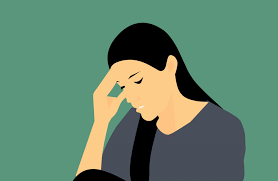What is self-esteem?

The way people think and feel about everything in life is based on interactions and opinions formed throughout living our everyday lives. The way people perceive and value themselves is known as ‘self-esteem’ – it is the opinion we have about ourselves. Self-esteem is based on such opinions and beliefs, and it can have a huge effect on a person’s mental health if their self-esteem is not healthy.
Healthy self-esteem is when people feel positive about themselves and about life in general. Having healthy self-esteem in turn allows people to be better equipped to deal with the highs and lows of life. It is important to have because it can affect the way we see ourselves, the ability to recognise our positives and strengths, to be able to show kindness towards ourselves, and have the beliefs that we deserve happiness, are good enough, and matter in this world, among others.
Everyone goes through times where they do not feel good about themselves and lack confidence in what they are doing, but when our self-esteem is low for a long time, it can have harmful effects on our lives and on our mental health. Having low self-esteem causes us to see ourselves in a more critical and negative way, and in turn we are less well equipped to deal with what life throws at us. Low self-esteem can be caused by life experiences that are stressful or difficult such as problems with money, employment, relationships, body image, education, housing, physical health, and/or mental health. Other experiences could be suffering bereavement, being bullied or abused, experiencing discrimination, stigma, or prejudice, or having ongoing stress. The list is not exhaustive, and there are also many other things that can contribute to it, and there may not be one particular cause for it to occur.
For people who have low self-esteem, it often starts in their childhood where people in their lives send them positive and negative messages about themselves – these may come from people such as their parents, family members, friends, teachers, and even other parts of society such as the media. Some people are also more prone to think negatively and have low self-esteem due to their personality.
For a person who has low self-esteem, they may stay away from social situations or avoid trying new or challenging things as by doing so they may feel safe. However, by doing this, people could learn that the only way to cope is by avoiding things, which is extremely unhelpful. As a way of coping, habits may also be developed such as smoking and drinking, which have the potential to cause their own harm. Living with low self-esteem can harm a person’s mental health because there is the possibility that it may lead to problems such as anxiety and depression.
Due to the negative consequences of having low-esteem, it is therefore important to aim to have healthy self-esteem. There are different ways this can be achieved, but identifying the negative beliefs a person has about themselves and then challenging them is a good place to start. At any age, people can develop new ways of how they see themselves, and one way of doing so is by writing a list that contains the positive things about yourself and the positive things people say about you. By putting this list somewhere where you constantly see it can remind you of them every day.
Self-esteem is important because it impacts upon the way we see ourselves and therefore can affect the way we think and do things in our lives. While low self-esteem isn’t a mental health problem on its own, it is closely linked as it can lead to mental health problems. It is extremely important and therefore please take a look at the references list for more information and ideas on how to improve self-esteem.
Sarah Keeping MBPsS MSc PgDip GDip BA (Hons) Cert HE
Follow Sarah on twitter at @keepingapproach, facebook at @keepingapproach, and on instagram at @thekeepingapproach
Follow E-therapy on social media:
Facebook – @Etherapy
Instagram – @EtherapyToday
Twitter – @EtherapyToday
References
https://www.nhs.uk/conditions/stress-anxiety-depression/raising-low-self-esteem/



